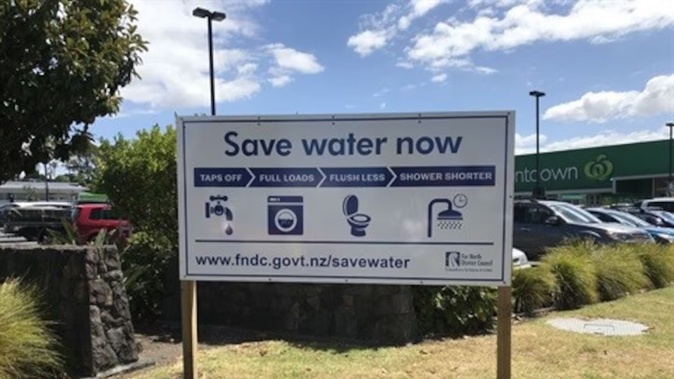
Despite recent rain and more forecast for the coming week, Level 2 water restrictions will come into effect for parts of the Far North.
Three of Far North District Council’s (FNDC) eight water supplies have been placed on either Level 1 or 2 water restrictions.
Starting Monday (December 16), Kaikohe-Ngāwhā, Kaitāia, Kerikeri-Waipapa, Paihia-Ōpua-Waitangi and Ōkaihau have been placed on Level 1 restrictions, while Kawakawa-Moerewa, Ōmanaia-Rāwene and Ōpononi-Ōmāpere have been placed on Level 2.
At Level 1, no restrictions apply but residents are encouraged to use water sensibly. Level 2 restrictions ban the use of outdoor sprinklers and irrigation systems.
“While recent rain has seen an increase in the water levels in several Far North rivers, streams, and other water supplies, restrictions have been applied to three water sources because of predictions of a hot summer ahead and with an influx of holiday visitors in mind,” council said in a statement.
“In Kawakawa and Moerewa, the Tirohanga Stream, which feeds bores that supply water to the towns, has responded well to recent rainfall but is still vulnerable to levels dropping significantly when rain eases.”
FNDC said while the recent identification of several leaks in the reticulation system in Rāwene has resulted in a significant improvement to the town’s water supply, consumption levels remain high and applying Level 2 restriction was key to reducing demand.
“The Petaka Stream, which is the water source for both Rāwene and Ōmanaia, is very small and has limited water flow. Northland Regional Council’s [NRC] resource consent limits the amount of water the council can take each day and water flows are nearing that limit.” A $2.8 million upgrade to the local water treatment plant and installation of storage tanks near Ōmanaia in 2019 did reduce the need to automatically apply restrictions to Ōmanaia and Rāwene every December. However, both the storage tanks and stream remain reliant on regular rainfall to replenish them when demand is low.
In Ōpononi and Ōmāpere, the Waiotemarama Stream is also sensitive to fluctuations in rainfall.
“The council’s Water Shortage Management Committee will continue to monitor levels during the summer holiday break, and the Level 2 restrictions applied to these three water supplies will remain in place during this time.”
According to NRC’s latest climate report for November, most of Northland is “moderately dry” to “severely dry”. For the three months from November, soil moisture levels are likely to be below average and river flows are likely to be nearly normal or below normal.
Take your Radio, Podcasts and Music with you









